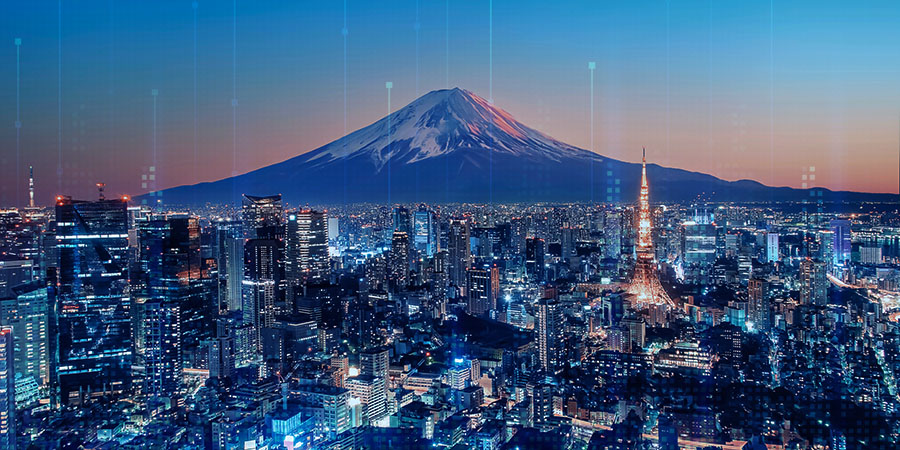Japan has been known for its technological advancement and expertise. The country is one of the pioneers when it comes to establishing smart cities.
The integration of state-of-the-art technology and environmentally friendly practices is laying the groundwork for what smart cities should embody on a global scale. Japan is not only leading the way towards technological advancement but is also making a mark in promoting a more sustainable and livable future by implementing renewable energy, intelligent transportation systems and green technologies in buildings.
Building the Foundation of a Smart City
The Japanese government has championed the concept of ecological cities long before the advent of smart cities. Advocating for intelligent and sustainable living practices within its communities, Japan has been at the forefront of promoting environmentally conscious urban development. By 2010, the notions of a "smart city" and a "smart community" had become integral to Japan's urban development strategy.
A smart city can be defined as a city that prioritizes the promotion of social, environmental, and economic sustainability, achieved by utilizing digital and technological innovations to enhance services and meet the needs of all its residents.
A smart city fundamentally incorporates technology to enhance the standard of living for its inhabitants. This integration is evident in various forms, including the development of more intelligent urban transportation systems, improved management of water supply, measures to reduce waste, and the adoption of more efficient lighting and heating systems in buildings. The ultimate objective is to establish a networked, streamlined, and resilient urban ecosystem.
Japan’s Notable Smart Cities
Japan's progress towards smart cities accelerated significantly after the East Japan earthquake in 2011. The calamity highlighted the vulnerability of traditional society and the limited duration of electrical energy, causing the Japanese government to prioritize sustainable urban development. The Japan Times has reported that in 2020, more than 50 smart city projects were initiated by local governments, but only five were granted approval before the end of the year. However, surveys show that the industry is still expanding, and it is expected that the Japanese smart cities market will grow in 2027 with a compound annual growth rate (CAGR) of 13.1%.
The Fujisawa Sustainable Smart Town (FSST) in the Kanagawa Prefecture, is one of the pioneering models of intelligent urban development in Japan. It opened to 100 families in 2014 but has since grown to a community of 1,000 households. The project focuses on five primary domains: energy, security, mobility, wellness, and community. Panasonic's objective was to achieve a 70% reduction in CO2 emissions, a 30% decrease in water consumption, and a 30% incorporation of renewable energy into the town's energy consumption.
Another notable example of smart cities in Japan is Kawasaki City in the Kanagawa prefecture. The Kawasaki Zero-Emission Industrial Complex serves as the central hub for this program, facilitating collaboration across enterprises to optimize resource efficiency and decrease waste. Within this intricate setting, corporations partake in resource-recycling manufacturing endeavors, converting industrial waste and by-products into valuable primary resources.
Meanwhile in Northern Japan, Sapporo City in Hokkaido is recognized for its outstanding achievements in sustainable urban development. Sapporo has made substantial progress in its efforts to become an environmentally friendly city, which has been acknowledged as part of the United Nations' Sustainable Development Goals (SDG) Future Cities initiative.
In 2020, Sapporo became the first Japanese city to be awarded the LEED (Leadership in Energy and Environmental Design) for Cities and Communities Platinum certification. Sapporo was granted the award due to its low levels of greenhouse gas emissions and minimal per capita residential wastewater utilization. According to the Global Destination Sustainability Movement, Sapporo has successfully preserved 60% of its land area as green space.
Furthermore, cities like Toyota City and Yokohama exemplify Japan's commitment to incorporating smart technologies and eco-friendly infrastructure to enhance quality of life and promote environmental sustainability.
Moreover, cities such as Kitakyushu and Tsukuba further underscore Japan's leadership in smart city innovation. With comprehensive environmental initiatives and pioneering projects in renewable energy, transportation, and healthcare, these cities exemplify Japan's holistic approach to smart city development.
Future of Smart Cities
Despite the success in Japan’s smart cities, the initial establishment of these communities have also faced challenges. Among these is the upfront expense associated with adopting and integrating modern technology and infrastructure. Although these investments have the potential to generate long-term advantages, obtaining investments and providing quick returns can be difficult.
Looking ahead, Japan's smart cities are expected to advance and grow further, driven by the progress of artificial intelligence (AI) and the Internet of Things (IoT). These technologies will provide more efficient and effective resource management, thereby improving the resilience and sustainability of smart cities.






